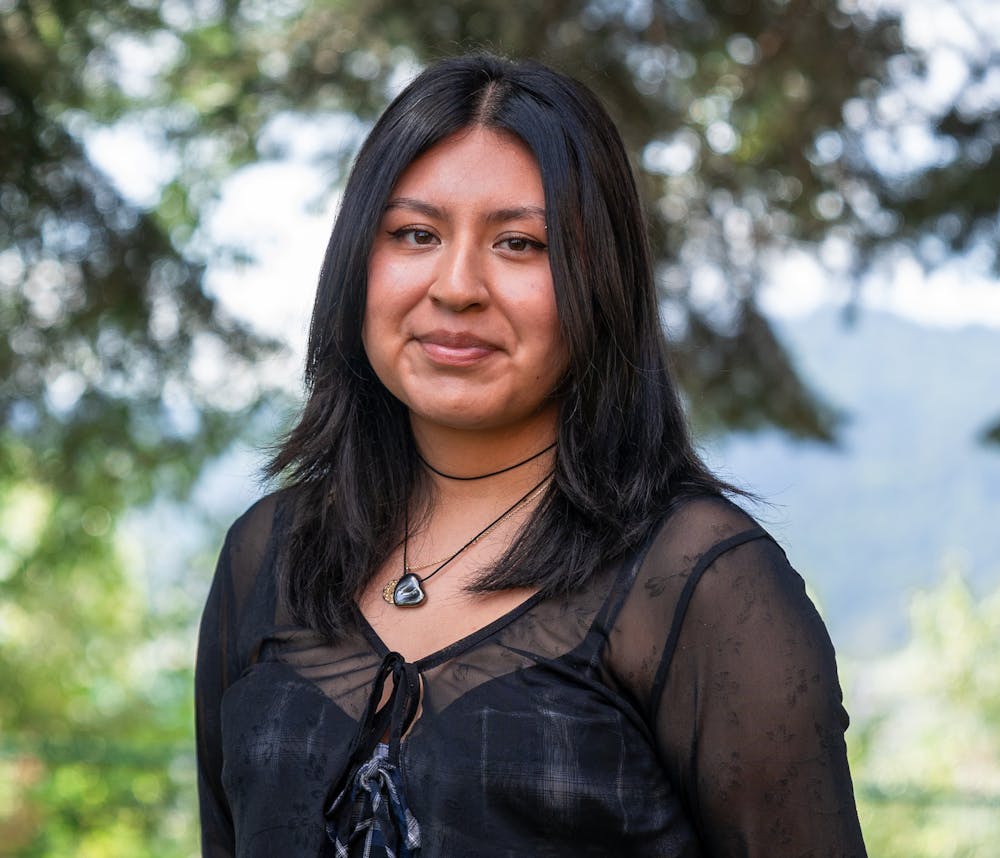I sat in the back of the dark movie theater with my friends, hugging the giant popcorn bucket for comfort, feeling a wave of emotions wash over me. It was happiness, sadness and pride all rolled into one warm feeling in my stomach. I even let out a few tears once the credits rolled.
Would anyone be surprised if I said I was watching “Blue Beetle”? As silly as it may sound, I felt so connected to the story being told on the screen. The first-generation student and American experience, La Chona playing in the background, the references to El Chapulin Colorado — all of it was filled with memories from my childhood.
Although there has been representation of the Mexican-American experience both on the big screen and in TV shows, “Blue Beetle” was the first one that truly resonated with me. A big factor for this was the first generation versus Chicano experience.
A little history lesson: The term Chicano stems from the Nahuatl word, “mexica.” It was then translated into the Spanish language and eventually made its way into the U.S., serving as a category for Mexican-Americans during the 1950s-60s. However, over time, it has become the word used to identify Mexican-Americans that are second generation and beyond. I am not a Chicana. My parents were born and raised in Mexico, making me the first generation Mexican-American.
Why should you care about the difference? The short answer: Chicano and first-gen American experiences are different. There are challenges of mine that Chicanos may not be able to fully understand or relate to and vice versa. Labels are not everything, but in this case, understanding the difference also serves a purpose when translating Mexican stories on screen.
“On My Block” was revolutionary for its time (even though it’s only been a few years since it first released) and it served as a source of representation for a lot of Latine. It was one of the most seemingly accurate renditions of Mexican experiences and culture. Talking to my friends, we wondered if maybe it was because we were from the Bay and not L.A., but we could not fully relate to the way Mexican culture was represented.
That’s what made “Blue Beetle” so special. To me, it felt like a story that was written for Mexicans (and perhaps even other Latine) by a Mexican. It was a story I felt like I even wanted to share with my parents because I knew I would see my dad’s giant grin when he understood a reference that was made. Watching it made me wish I would’ve been able to share the moment with my family back home.
Watching Xolo Maridueña play a college-educated superhero, Iñaki Godoy playing pirate in “One Piece,” Jenna Ortega playing Wednesday Addams and America Ferrera and Ariana Greenblatt playing a mother and daughter duo mending their relationship through Barbie, I feel so proud of the way Latinos are being portrayed. We are so much more than cholos (Mexican gangsters) or narcos — we are real people that can be anything we want to be. That is what makes these stories so special. The Latinx community and the world can see that we are more than the generalizations made for us. I feel so incredibly proud to be Latino.
Tiffany Marquez Escobar is a reporter at The Beacon. She can be reached at marqueze25@up.edu.
Have something to say about this? We’re dedicated to publishing a wide variety of viewpoints, and we’d like to hear from you. Voice your opinion in The Beacon








